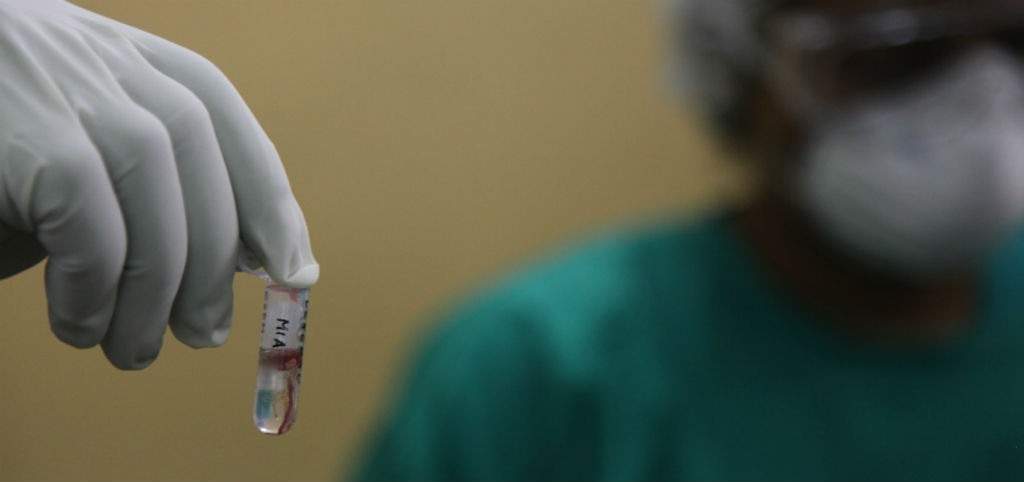CaDMIA-plus
Continued validation of the minimally invasive autopsy for the investigation of the causes of death in infants, and establishment of a research and training center to study causes of death

- Duration
- 01/01/2016 – 31/12/2018
- Coordinator
- Jaume Ordi
- Funded by
- Bill & Melinda Gates Foundation (OPP1128001)
Project Description
The CaDMIA study, funded by the Bill & Melinda Gates Foundation and coordinated by ISGlobal from January 2013 to December 2015, has demonstrated that the minimally invasive autopsy (MIA) tool can be used as a substitute for complete diagnostic autopsies (CDA) for cause of death determination (CoD) in all age groups. Preliminary results have shown that concordance between MIA and CDA is high, particularly for infectious causes of death.
The CaDMIA study has also highlighted, in different cultural, religious and geographical environments, an overall theoretical high acceptance of MIA by next of kin of deceased individuals, who also seem to be willing to know the causes of death of their loved ones. Altogether, these encouraging preliminary results have fueled the interest of funders and research groups for the potential use of MIAs as a tool to be used in real life conditions for CoD investigations in places where CDAs are unfeasible or unacceptable.
The CaDMIA-plus project, to be developed from January 2016 to December 2018 by ISGlobal together with CISM and the Maputo’s Central Hospital aims to:
- Continue the validation of the minimally invasive tissue sampling (MIA) tool for its wider use for cause of death surveillance in children from developing countries
- Create a training and research center for the evaluation of cause of death that can support current and future initiatives and research in this topic
CaDMIA-plus is coordinated by ISGlobal and is developed in the Central Hospital of Maputo, the Health Research Center in Manhiça and the Hospital Clinic at the University of Barcelona. The team also collaborats with the CHAMPS project, an international surveillance network of child mortality epidemiology, funded by the Bill & Melinda Gates Foundation and coordinated by the Emory University and the Centre of Disease Control (CDC), USA.
Subprojects:
- Continue the validation of the MITS technique as compared to the complete autopsy to determine the causes of death in pediatric cases (including still births, neonates and children under five)
- Adjust the MITS methodology for the study of specific conditions such as diarrheal diseases, malnutrition and anemia
- Determine the diagnosis threshold of MITS according to the time since death
- Evaluate the percentage of agreement in the diagnosis of causes of death with MITS and complete autopsy as compared to the verbal autopsy
- Establish a research and training center for post-mortem studies
ISGlobal staff involved:
- Jaume Ordi (PI)
- Quique Bassat (co-PI)
- Clara Menéndez (co-PI)
- Paola Castillo (Senior pathologist)
- Mikel Martínez (Senior microbiologist)
- Juan Carlos Hurtado (Microbiologist)
- Llorenç Quintó (Statistics)
- Lorena Marimon (Lab technician)
- Mireia Navarro (Lab technician)
- Ariadna Sanz (Project manager)
Related publications:
- Plos Collection: http://blogs.plos.org/speakingofmedicine/2017/06/22/plos-collection-on-minimally-invasive-autopsies-in-low-and-middle-income-countries/
- Plos Med: http://journals.plos.org/plosmedicine/article?id=10.1371/journal.pmed.1002431
- Plos Med: http://journals.plos.org/plosmedicine/article?id=10.1371/journal.pmed.1002171
- Plos Med: http://journals.plos.org/plosmedicine/article?id=10.1371/journal.pmed.1002317
- Plos Med: http://journals.plos.org/plosmedicine/article?id=10.1371/journal.pmed.1002318
- Lancet Global Health: http://www.sciencedirect.com/science/article/pii/S2214109X13700378
- PLoS ONE: http://journals.plos.org/plosone/article?id=10.1371/journal.pone.0132057
- Diagnostic Microbiology and Infectious Disease: http://www.sciencedirect.com/science/article/pii/S0732889315003569
- American Journal of Respiratory and Critical Care Medicine: http://www.atsjournals.org/doi/abs/10.1164/rccm.201502-0245IM#.VpTTG_nhDGg
- Scientific reports – Nature: http://www.nature.com/articles/srep20703
- PLoS Med: http://journals.plos.org/plosmedicine/article?id=10.1371/journal.pmed.1001927
Other projects
Evaluación de la eficacia del ácido acetilsalicílico a dosis bajas en la prevención de los efectos maternos y perinatales adversos en mujeres embarazadas infectadas por el SARS-CoV-2
PROTECT
PReparing for Optimal Phase III/IV maTErnal Group B StreptococCal vaccine Trials in Africa
HIV drug resistance (HIVDR)
Description of HIV drug resistance patterns and its association with the risk of HIV mother to child transmission among pregnant women from southern Mozambique
SARA (SARS-CoV-2 and Acetylsalicylic acid)
Efficacy of low dose acetylsalicylic acid in preventing adverse maternal and perinatal outcomes in SARS-CoV-2 infected pregnant women
VITAL
Towards preparedness for new maternal vaccinations: Understanding barriers and facilitators to maternal vaccine acceptance
RESPIRE
Respiratory syncytial virus (RSV) in African pregnant women and children
IPERVAC-SL
Impact of perceptions of COVID-19 vaccines on health-seeking behaviours in Sierra Leone
MA-CoV
Prevalence and impact of SARS-CoV-2 infection on maternal and infant health in African populations



